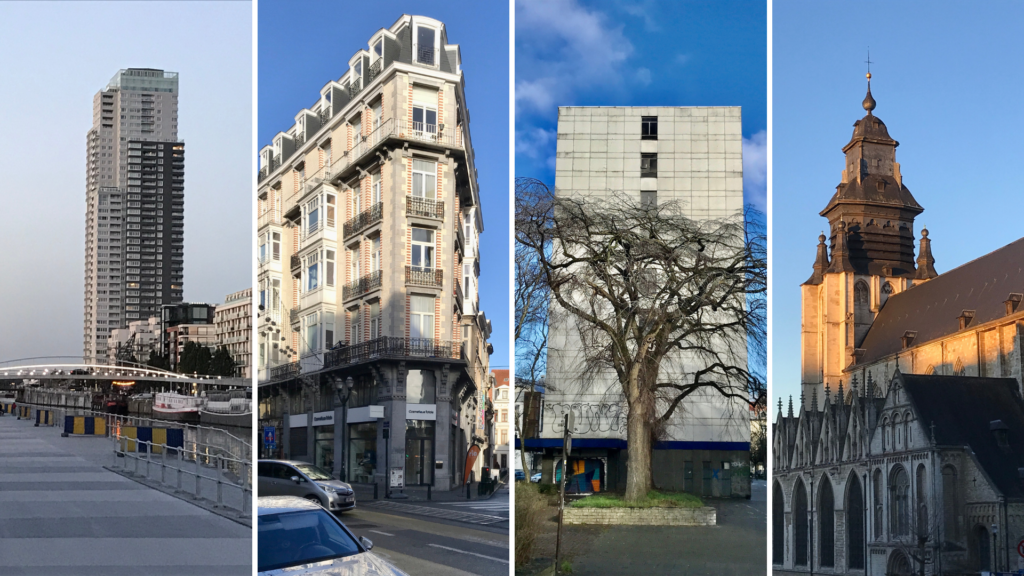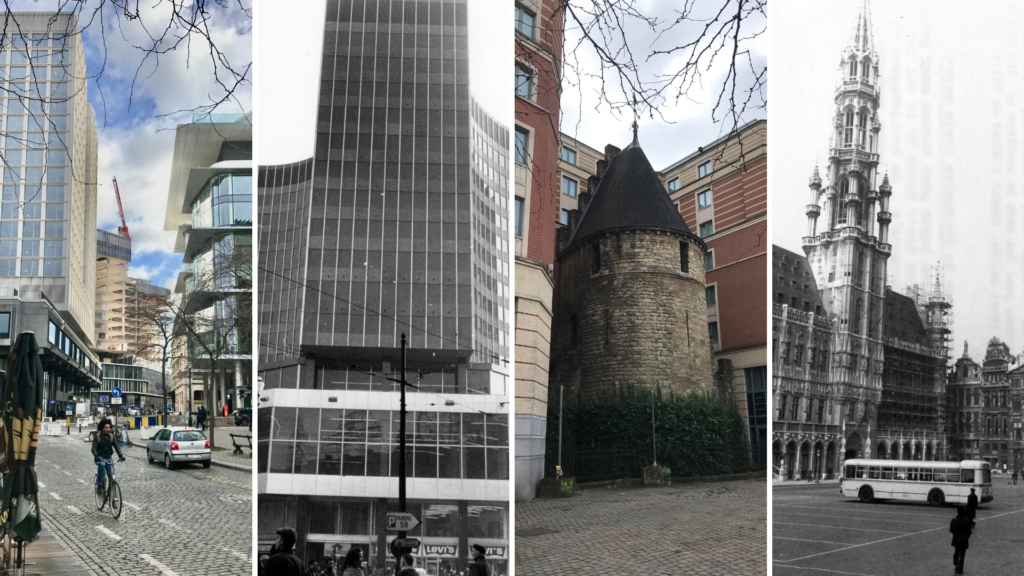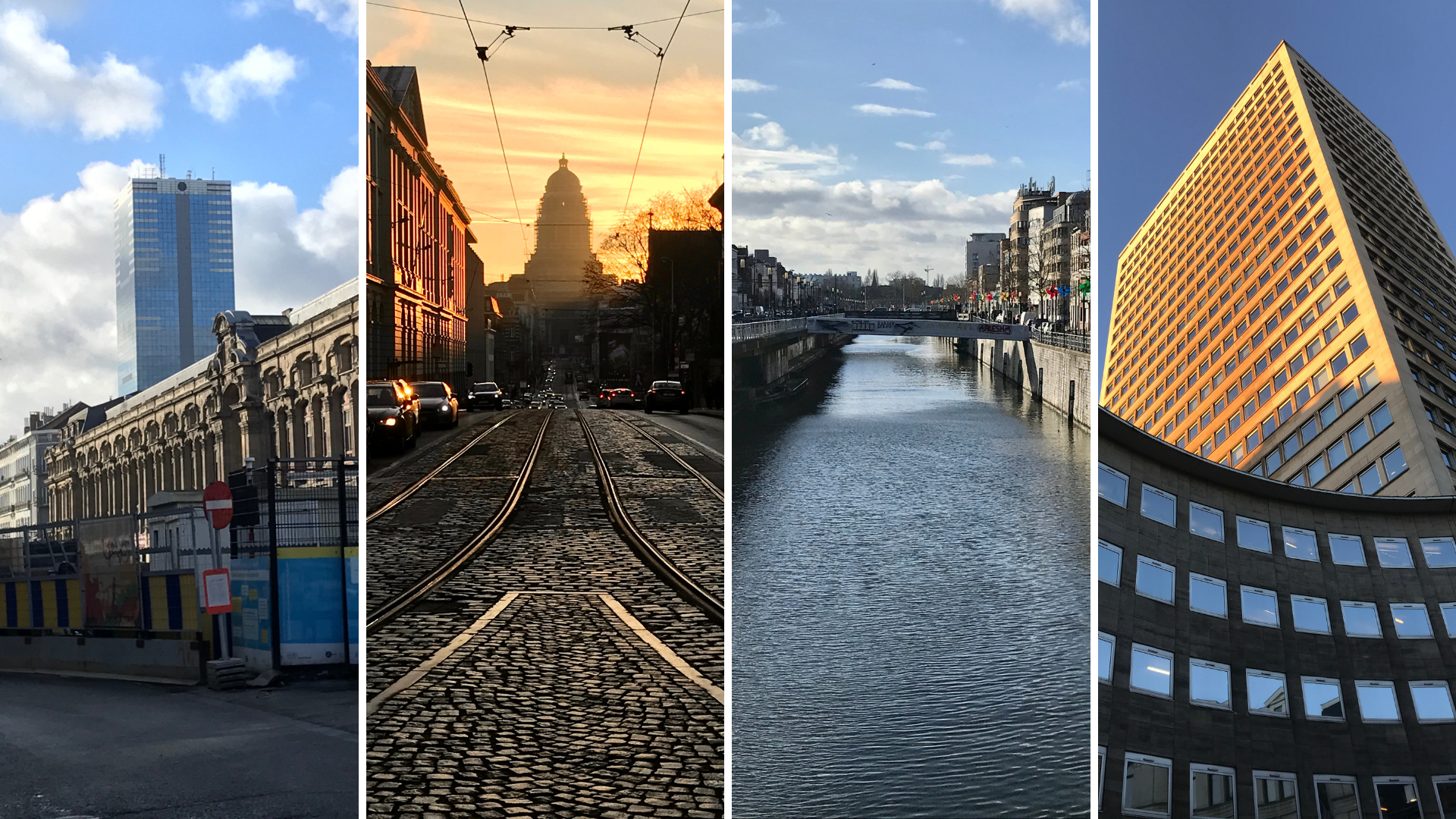Could anyone get bored of Brussels? The question echoes Dr Johnson’s maxim about London but having left that great city four years ago, I’d wager the Belgian capital has even more to marvel at, with its confluence of cultures, international affairs interspliced with local events, and human history piling up around us.
The task of reporting on the city highlights the diversity of activity and breadth of opinion packed into a space one can easily traverse by foot. But wandering through town, with its melange of façades and clamour of conversation in all tongues, is a reminder of how impossible it is to squeeze Brussels onto the page. Where do you even start?
I turned to someone who has made a career of demystifying the city after being struck by the assertion that "Nothing compares to the metropolitan anarchy that Brussels radiates." The statement was made by Geert van Istendael, a writer who has devoted books to presenting his multifaceted homeland in a format that can be appreciated by foreigners. Now in his 70s, this ebullient Brusseleir has come closer than most to getting the measure of Belgium and providing an answer for the myriad moments a newcomer wonders But why? as they behold some bizarre example of Belgitude for the first time.
His 1989 work The Belgian Labyrinth unpicks the history that underpins many conventions of the present day. Other pertinent publications include Poor Brussels (1992), written towards the end of a 20-year career with Belgium’s Dutch-language news broadcaster VRT, a national organisation in which "nobody gave a damn about Brussels" until the 80’s. Last year Van Istendael was awarded the honorary title of Brussels Ambassador. Not shy to express strong views on the capital, he still finds the city fascinating though has now retired to a village in the Flemish Brabant province about 20km east of Brussels.
I’m especially eager to press him on the topic of disorder, which he sees as a crowning characteristic of the city. He is fantastically frank in acknowledging "Our peculiar way of spoiling public space, building all types of houses all over the place." Van Istendael is a champion of the capital: "as soon as I hear someone say that Brussels is a 'hellhole' and that kind of nonsense, then I protest." But while there’s a particular allure in the patchwork of building styles and wealth of nationalities that call this place home, the anarchism brings conflict that threatens to undermine Brussels’ prosperity.

The eye-catching and the eye-sore, Brussels has it all. Credit: Orlando Whitehead
Having carried out research in urban planning, Van Istendael is under no illusion about Belgium’s trademark mess of buildings and general lack of order. However he warns that in Brussels this is "overseen by people that wish to destroy the city." It’s not simply the lack of consideration by city administrators who allow modern eye-sores to invade public spaces once filled with ornate Art Nouveau facades. When it comes to major projects, the heedless dispensing of public funds is far less excusable.
We talk about the metro line 3, an undertaking that already has soared €1.3 billion over budget and will now require dismantling the historic Palais du Midi – an architectural jewel of the local neighbourhood. For van Istendael it is such instances as these that threaten to undermine the very essence of what makes the city great, both by the brutish effort to impose structure and the profligate waste of funds that would be far better used elsewhere.
As one who puts Belgium’s social security "on a pinnacle of European civilisation, on a par with Bach, Dante and the French cathedrals", this isn't just the talk of an old-timer reminiscing the glory of days past. Van Istendael is keenly aware of the importance of allocating public funds wisely. Self-deprecating and jovial throughout, he is deadly serious when he calls himself "an old-fashioned social democrat: minimum wages, good social security, good schools for everybody."
Far from your average Boomer, my companion is active with the group Grandparents for Climate and declares that "climate justice and social justice are inseparable."
Stop trying to fix Brussels
"Brussels is beyond repair," is a claim that encapsulates Van Istendael’s frustration at political ineptitude. As he sees it, attempts to tidy up the city – at staggering cost – are symptomatic of an abject failure to grasp what makes it so special. There is a common theme among Brussels politicians to exaggerate the city’s status. Yes, it’s the heart of Europe but it’s conceited to pretend it has the splendour of Paris, the antiquity of Rome, or the majesty of London.
I myself have often remarked on the urge to put Brussels on a pedestal beside megapoles that dwarf the humble Belgian capital. Such claims are comical but also miss the point of what makes this a truly great place. Whilst other cities impress with their feats of modern design or seamless infrastructure, Brussels is fantastically chaotic with efforts to improve one area invariably creating more things to fix.

Brussels often struggles to find the balance between old and new, with heritage frequently in the shadow of modern developments. Credit: Orlando Whitehead / Belga archives
Too often, the desire to portray Brussels as a shining light of modern urbanism overlooks what the city does best – local life with an international feel. For jaw-dropping superstructures and a big city buzz, you're better off looking elsewhere. Those who know the Belgian capital understand that the less obvious measure of "livability" is where Brussels really excels.
The former State Secretary for Urbanism Pascal Smet was lucid when he called Brussels "perfectly imperfect", though Smet then engineered his own downfall when he tried to market the "Brussels model" to the world.
When it comes to matters of urban regeneration, one often wishes for a delicate touch rather than a grand gesture. Responding to the needs of residents rather than imposing bold visions would be a far better approach to preserving Brussels and helping it to flourish. Our conversation left me more convinced than ever that the city’s charm flows directly from disorder. And what could be more human?

